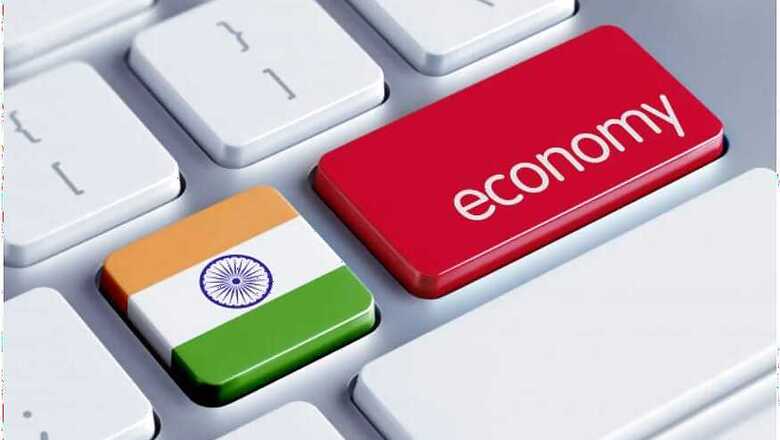
views
New Delhi: There is no longer any doubt about India’s economy facing an unprecedented crisis. The gross domestic product (GDP) growth rate has declined to historic lows for two successive quarters — demand in sectors such as automobiles, real estate and even biscuits has collapsed.
The latest report by market tracking agency Nielsen shows that demand for FMCG products (soaps, shampoos, hair oils and biscuits) has fallen sharply across rural markets signalling prolonged agrarian distress and stagnant rural incomes.
India’s factory output has been slowing and exports are stuttering. Several international agencies, including the International Monetary Fund (IMF), have lowered India’s growth forecast for 2019-20 by unheard-of margins within a matter of months, even as the government continues to assert that India remains one of the fastest-growing economies in the world.
In such a scenario, it is only natural for politicians to play the blame game, lest they be tasked with actually doing something to bring the economy back on track. Finance Minister Nirmala Sitharaman has put the onus of the ongoing banking mess on the previous Congress-led United Progressive Alliance (UPA) government, pointing towards rampant corruption and crony capitalism that allegedly defined the 10-year UPA tenure.
Of course, she was rebutting what former RBI governor Raghuram Rajan said earlier in the week on majoritarianism and its impact on economic policies of this government.
It is no surprise that the UPA has shrugged off Sitharaman’s charge, with former Prime Minister Manmohan Singh pointing out the obvious: that the Narendra Modi government that has already been in power for over five years was merely “passing the buck” and should instead take concrete steps to tackle the slowdown.
This political blame game is par for course but does nothing to tackle the current economic urgencies of this country. One is tempted to point out that both, the UPA and the BJP-led National Democratic Alliance (NDA) have made some wrong calls which have led to the current mess.
There is no denying that the alleged crony capitalism led to a severe crisis across the banking sector during the UPA tenure, with bad loans spiking manifold. And it was Rajan who, as RBI governor, began pushing banks to recognise that stress.
Similarly, there is little doubt that some of the NDA government’s policies, notably demonetisation and then implementation of the GST, are at least partly responsible for the current widespread economic slowdown in the country.
It is true that Sitharaman has announced a series of measures over the last few weeks, often going back on her own Budget diktats, to spur growth.
The biggest measure by her so far has been a drastic reduction in headline corporate tax, which has brought relief to India Inc and could lead to some relief in prices for the aam aadmi too. But all these steps are seen as incremental, with analysts and economists pointing out that they do not address the elephant in the room: collapse in demand.
And despite many sectoral measures by the government, sales of cars and houses have also remained down in the dumps and GST collections have also been faltering as economic activity slows across the board.
Analysts at India Ratings noted that the recent measures announced by the government to arrest the economic slowdown, “are likely to support growth only in the medium-to-long term. Also, as most of the measures announced endeavour to reduce the cost of goods and services, they are essentially a supply-side response to revive growth. The agency believes the bigger challenge facing the economy is from the demand side as consumption demand has collapsed and private corporate investment is not forthcoming. Therefore, Ind-Ra believes the need is to take steps/measures that will enhance the disposable income/put additional money in the hands of rural/urban households. Additionally, the government also needs to step up its spend on rural infrastructure activities such as rural roads/rural housing, Mahatma Gandhi National Employment Guarantee Scheme, etc. to generate large-scale employment that could add/stimulate consumption demand.”
Given this background, leaders need to stop politicking over who hurt the economy more and instead come forward to find solutions through cooperation.
Spurring demand should be a priority, as should be job creation besides a better regulatory oversight of banks (case in point is the crisis unfolding at Punjab and Maharashtra Cooperative Bank besides other banking frauds).
Could the NDA government consider roping in Manmohan Singh and other eminent economists, who may not be aligned with its ideology, to find bipartisan solutions to tackle the slowdown? Economic solutions, not political rhetoric, would be able to solve the current mess, after all.



















Comments
0 comment